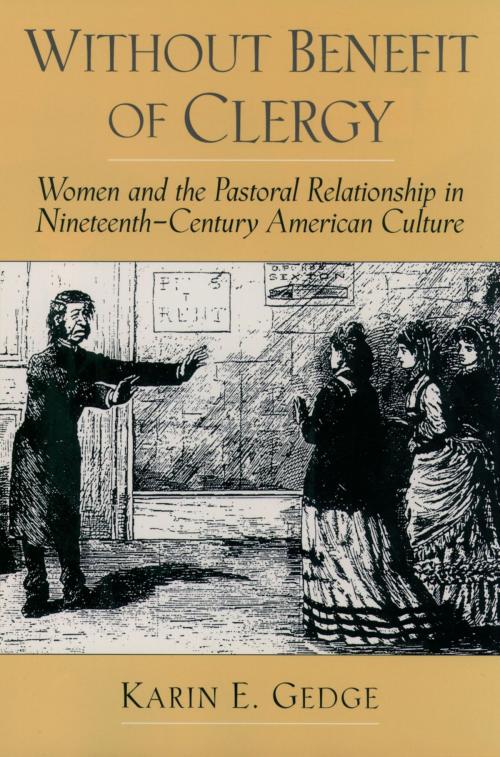Without Benefit of Clergy
Women and the Pastoral Relationship in Nineteenth-Century American Culture
Nonfiction, Religion & Spirituality, Inspiration & Meditation, Pastoral Counseling, Christianity, Church, Church History, History, Americas, United States, 19th Century| Author: | Karin E. Gedge, Harry S. Stout | ISBN: | 9780190284749 |
| Publisher: | Oxford University Press | Publication: | November 6, 2003 |
| Imprint: | Oxford University Press | Language: | English |
| Author: | Karin E. Gedge, Harry S. Stout |
| ISBN: | 9780190284749 |
| Publisher: | Oxford University Press |
| Publication: | November 6, 2003 |
| Imprint: | Oxford University Press |
| Language: | English |
The common view of the nineteenth-century pastoral relationship--found in both contemporary popular accounts and 20th-century scholarship--was that women and clergymen formed a natural alliance and enjoyed a particular influence over each other. In Without Benefit of Clergy, Karin Gedge tests this thesis by examining the pastoral relationship from the perspective of the minister, the female parishioner, and the larger culture. The question that troubled religious women seeking counsel, says Gedge, was: would their minister respect them, help them, honor them? Surprisingly, she finds, the answer was frequently negative. Gedge supports her conclusion with evidence from a wide range of previously untapped primary sources including pastoral manuals, seminary students' and pastors' journals, women's diaries and letters, pamphlets, sentimental and sensational novels, and The Scarlet Letter.
The common view of the nineteenth-century pastoral relationship--found in both contemporary popular accounts and 20th-century scholarship--was that women and clergymen formed a natural alliance and enjoyed a particular influence over each other. In Without Benefit of Clergy, Karin Gedge tests this thesis by examining the pastoral relationship from the perspective of the minister, the female parishioner, and the larger culture. The question that troubled religious women seeking counsel, says Gedge, was: would their minister respect them, help them, honor them? Surprisingly, she finds, the answer was frequently negative. Gedge supports her conclusion with evidence from a wide range of previously untapped primary sources including pastoral manuals, seminary students' and pastors' journals, women's diaries and letters, pamphlets, sentimental and sensational novels, and The Scarlet Letter.















